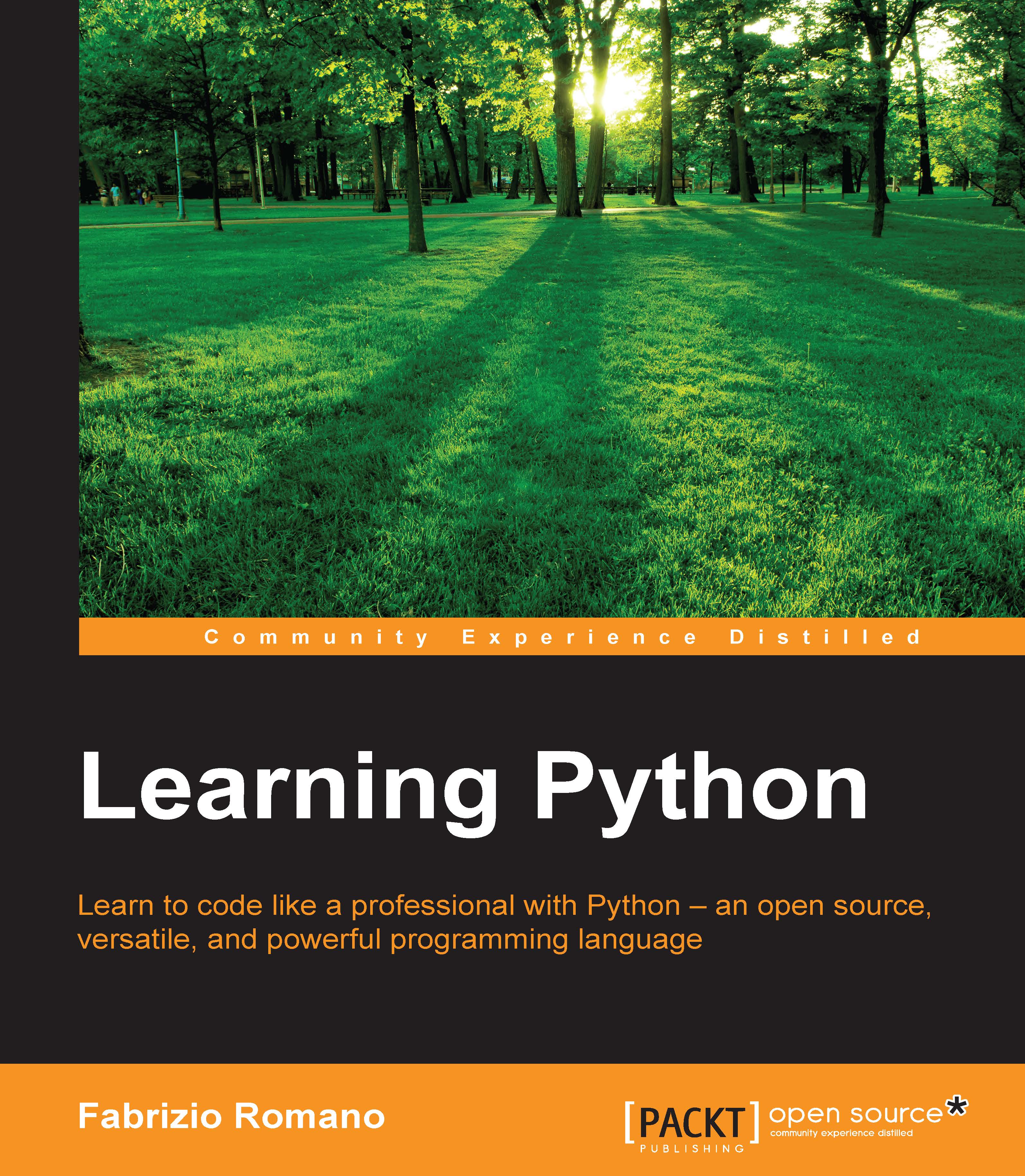-
Book Overview & Buying

-
Table Of Contents

Learning Python
By :

Learning Python
By:
Overview of this book
Learning Python has a dynamic and varied nature. It reads easily and lays a good foundation for those who are interested in digging deeper. It has a practical and example-oriented approach through which both the introductory and the advanced topics are explained. Starting with the fundamentals of programming and Python, it ends by exploring very different topics, like GUIs, web apps and data science. The book takes you all the way to creating a fully fledged application.
The book begins by exploring the essentials of programming, data structures and teaches you how to manipulate them. It then moves on to controlling the flow of a program and writing reusable and error proof code. You will then explore different programming paradigms that will allow you to find the best approach to any situation, and also learn how to perform performance optimization as well as effective debugging. Throughout, the book steers you through the various types of applications, and it concludes with a complete mini website built upon all the concepts that you learned.
Table of Contents (14 chapters)
Preface
 Free Chapter
Free Chapter
1. Introduction and First Steps – Take a Deep Breath
2. Built-in Data Types
3. Iterating and Making Decisions
4. Functions, the Building Blocks of Code
5. Saving Time and Memory
6. Advanced Concepts – OOP, Decorators, and Iterators
7. Testing, Profiling, and Dealing with Exceptions
8. The Edges – GUIs and Scripts
9. Data Science
10. Web Development Done Right
11. Debugging and Troubleshooting
12. Summing Up – A Complete Example
Index
